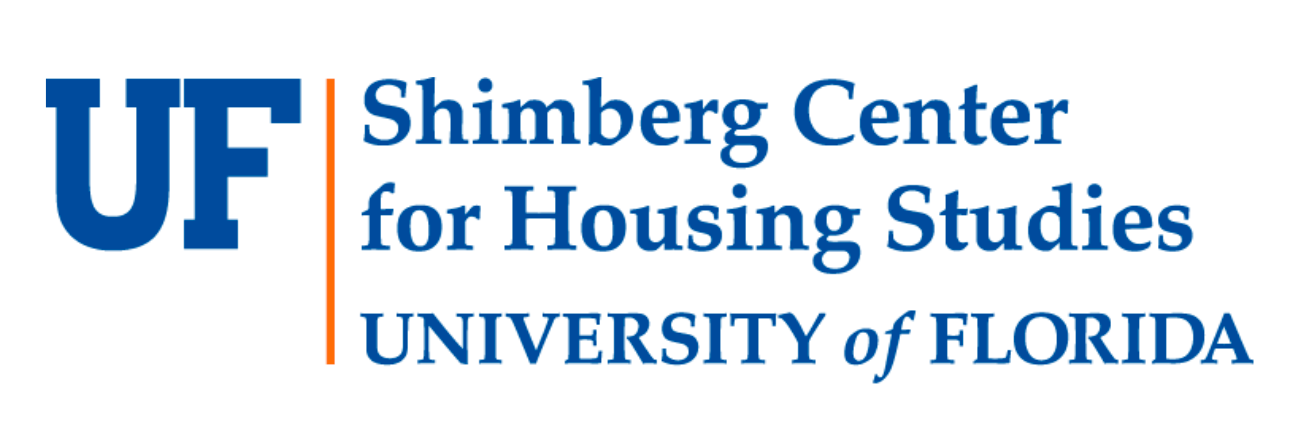Disaster Resilient Florida
The Disaster Resilient Florida (DRF) initiative addresses the effects of climate hazards on Florida's affordable housing and communities through actionable data, interactive visualization tools, and community outreach. Andrea Galinski, MLA, CFM, of the UF Shimberg Center and Department of Landscape Architecture leads a team studying the intersection of housing, disaster preparedness and recovery, and resiliency planning.
DRF projects include the following:
- "Resilience and Energy Assessment of Communities and Housing" (REACH). The REACH project is collaboration between the Center, Tampa Bay Regional Planning Council, Florida Housing Coalition, and community partners to improve resiliency in the 7-county Tampa Bay area. The Center created the Affordable Housing and Coastal Flood Hazards Tool, an online repository of spatial data that allows stakeholders to explore, analyze, and download these data at their preferred geographic scope.
- "ECF R2C Housing Assets and Resilient Policies" (HARP). The Center conducted a housing and coastal flood hazard analysis for the East Central Florida Regional Resilience Collaborative (R2C), which was focused on Brevard and Volusia counties. A preliminary investigation of inland flooding was conducted across the six-county region.
- "Flood Hazard + Housing Practitioner Information Network for Florida Coastal Communities". The team explored using thermal imaging from drones to collect data on buildings' base floor elevations, which could improve assessment flood risks to affordable housing sites. This project was a collaboration across the Center, M.E. Rinker, Sr. School of Construction Management, School of Art + Art History, and UF IFAS Extension Pinellas County/Florida Sea Grant, among others, and funded by the National Science Foundation's Smart and Connected Communities program.
- Center researchers compiled projected climate hazard data for Southeastern states from the 4th annual National Climate Assessment. The Center and Enterprise Community Partners used this data to create easily digestible reports for housing planners, program managers, and other stakeholders on the importance of planning for resilient affordable housing.
Ongoing projects include:
- "Quantifying the Effectiveness of Resilience Planning for Affordable Housing." Based on the Plan Integration for Resilience Scorecard (PIRS), developed by Texas A&M University, this project adapts the PIRS approach to focus on an evaluation of housing plans and understand how they may or may not advance a community's resilience goals. The team also includes the UF Levin College of Law Conservation Clinic and UF IFAS Extension Pinellas County/Florida Sea Grant.
- "Heat + Housing + Health Equity Network for the Southeast." The Center is teaming with Florida Clinicians for Climate Action to organize researchers and practitioners across the Southeast. The team is holding virtual workshops and conducting outreach to stakeholders to assess risks from excessive heat to affordable housing residents, outdoor workers, older adults, and others in Florida, Georgia, Mississippi, Alabama and Tennessee. Funding is from NOAA's Regional Integrated Sciences and Assessments (RISA) program.
- "Democratizing Data for Equitable Recovery." Through the National Academy of Sciences (NAS)-funded Gulf Research Program, a team is creating long term disaster recovery plans in the 9 counties of the Apalachee Regional Planning Council.
- "GulfSouth Studio." Collaborating with the Florida Institute for Built Environment Resilience (FIBER) and Florida Sea Grant, this NAS-funded project aims to explore the critical challenges facing the Gulf of Mexico's coastline and communities. The design-based initiative engages students in designing and visualizing solutions using Unreal Engine, a hyper-realistic visualization and gaming software.
- "Florida Department of Environmental Protection (FDEP) Vulnerability Assessments." Shimberg Center and FIBER will develop vulnerability assessments for the Gulf Coast cities of Cedar Key and Port St. Joe, with funding from FDEP. The partners will use advanced geospatial hazard assessment techniques to improve the cities' disaster preparedness and future resilience to climate risks.



